Publications
Articles, publications, books, tools and multimedia features from the U.S. Institute of Peace provide the latest news, analysis, research findings, practitioner guides and reports, all related to the conflict zones and issues that are at the center of the Institute’s work to prevent and reduce violent conflict.
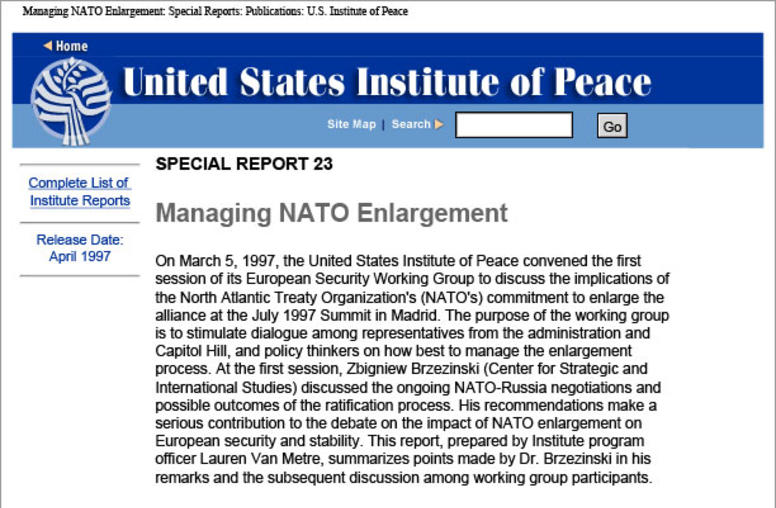
Managing NATO Enlargement
On March 5, 1997, the United States Institute of Peace convened the first session of its European Security Working Group to discuss the implications of the North Atlantic Treaty Organization's (NATO's) commitment to enlarge the alliance at the July 1997 Summit in Madrid.
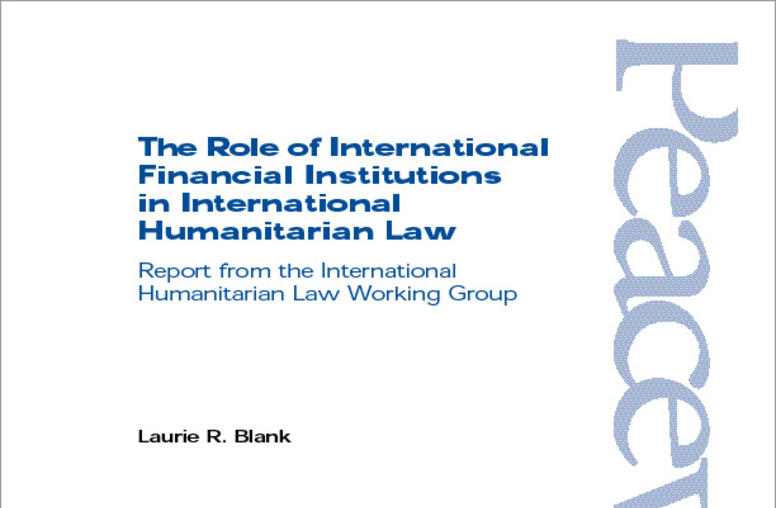
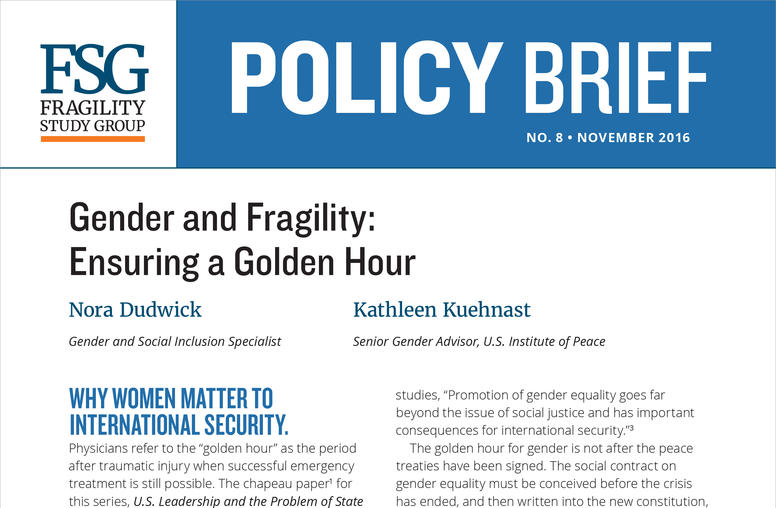
Gender and Fragility: Ensuring a Golden Hour
The Fragility Study Group is an independent, non-partisan, effort of the Carnegie Endowment for International Peace, the Center for a New American Security and the United States Institute of Peace. The chair report of the study group, U.S. Leadership and the Challenge of State Fragility, was released on September 12. This brief is part of a series authored by scholars from the three institutions that build on the chair report to discuss the implications of fragility on existing U.S. tools, st...
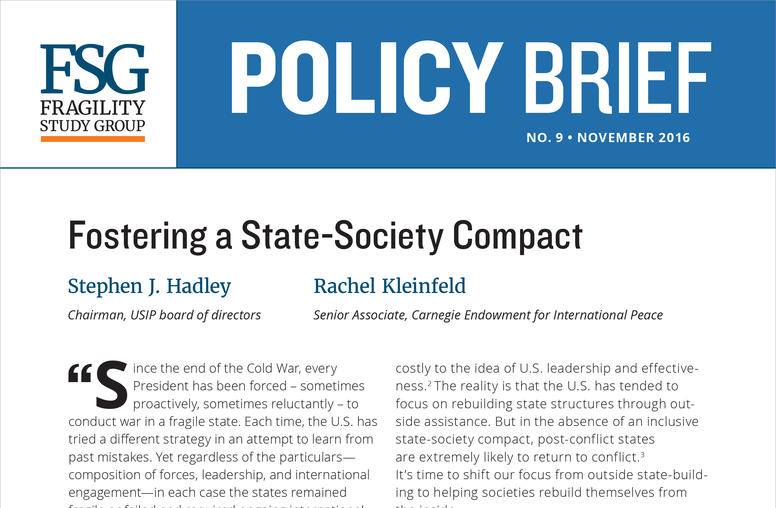
Fostering a State-Society Compact
The Fragility Study Group is an independent, non-partisan, effort of the Carnegie Endowment for International Peace, the Center for a New American Security and the United States Institute of Peace. The chair report of the study group, U.S. Leadership and the Challenge of State Fragility, was released on September 12. This brief is part of a series authored by scholars from the three institutions that build on the chair report to discuss the implications of fragility on existing U.S. tools, st...
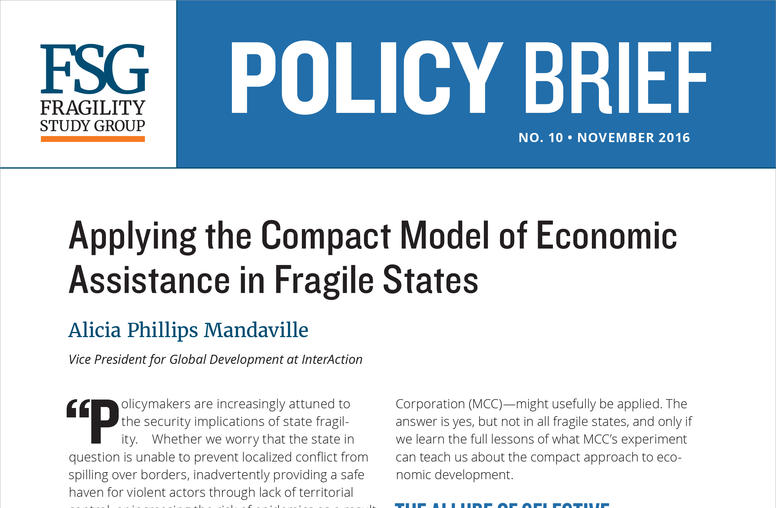
Applying the Compact Model of Economic Assistance in Fragile States
The Fragility Study Group is an independent, non-partisan, effort of the Carnegie Endowment for International Peace, the Center for a New American Security and the United States Institute of Peace. The chair report of the study group, U.S. Leadership and the Challenge of State Fragility, was released on September 12. This brief is part of a series authored by scholars from the three institutions that build on the chair report to discuss the implications of fragility on existing U.S. tools, st...
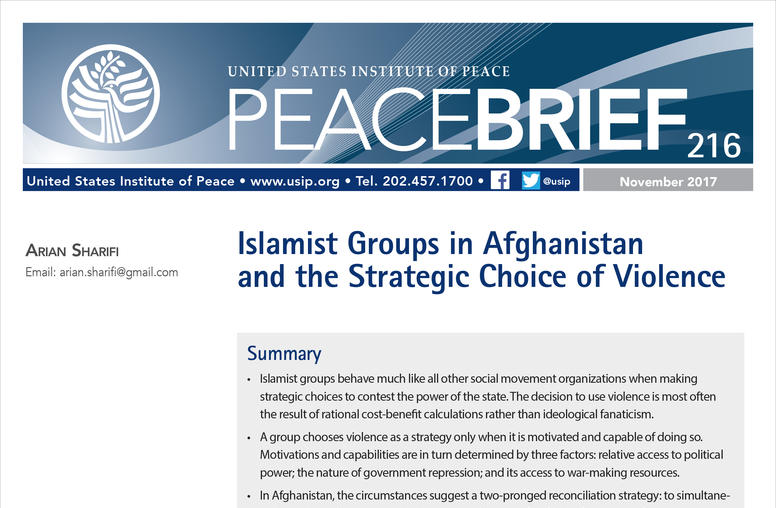
Islamist Groups in Afghanistan and the Strategic Choice of Violence
What causes established nonviolent groups to turn into violent organizations, and what leads organized violent groups to shun violence, even temporarily, and work within established political systems? This Peace Brief, which relies on in-depth interviews and primary source documents, explores the strategic choices Islamist groups in Afghanistan have made and make in using violence to contest government authority.
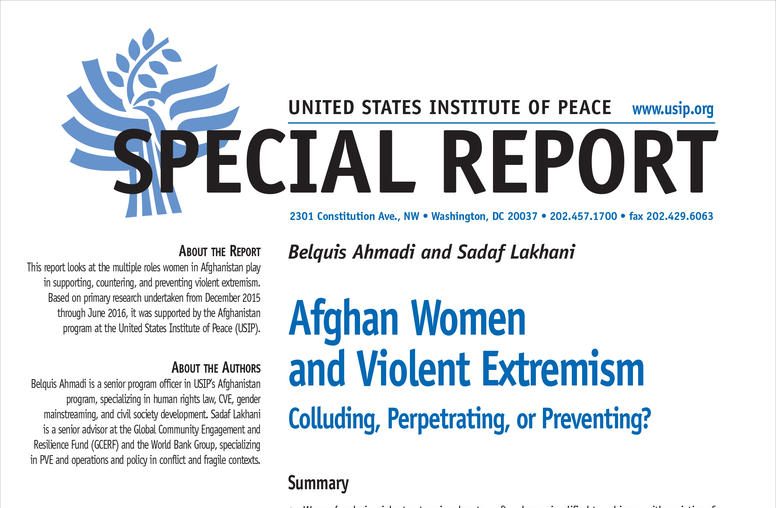
Afghan Women and Violent Extremism
In Afghanistan, the actions and narratives of violent extremist groups threaten to roll back many of the gains and hard-won rights of women over the last fifteen years. Women have long been cast in a binary light—as either disempowered victims or deviant anomalies—but in fact are involved in a wide range of activities, from peacebuilding to recruiting, sympathizing, perpetrating, and preventing violent extremism. Drawing on more than one hundred interviews in the field in Afghanistan, this re...
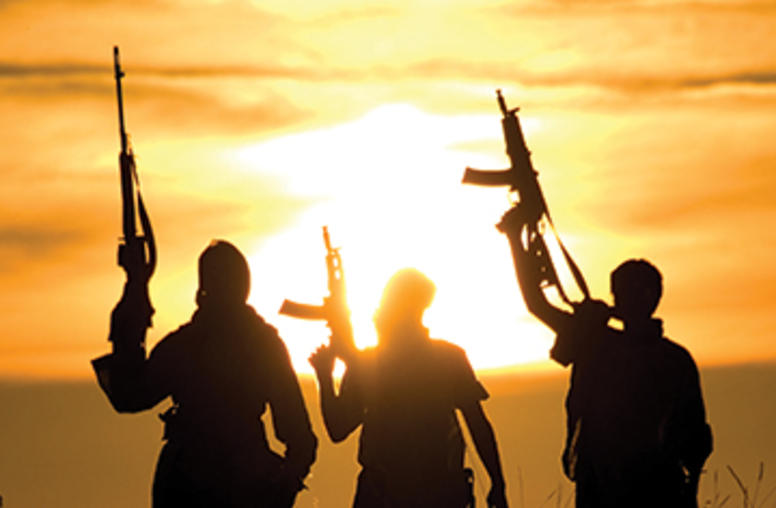
The Jihadi Threat: ISIS, Al Qaeda and Beyond
The West failed to predict the emergence of al-Qaeda in new forms across the Middle East and North Africa. It was blindsided by the ISIS sweep across Syria and Iraq, which at least temporarily changed the map of the Middle East. Both movements have skillfully continued to evolve and proliferate — and surprise. What’s next? Twenty experts from think tanks and universities across the United States explore the world’s deadliest movements, their strategies, the future scenarios, and policy con...

The Jihadi Threat 1: The Future of Extremism
Jihadism has evolved dramatically and traumatically since the 9/11 attacks. Movements, leaders, targets, tactics, and arenas of operation have all proliferated in ways unimagined in 2001. The international community has mobilized unprecedented force against an array of jihadis, with mixed results. The United States alone has spent trillions of dollars—in military campaigns, intelligence, law enforcement, homeland security, and diplomacy—to counter jihadism. Progress has been made; fewer than ...

The Jihadi Threat 2: Whither the Islamic State?
In the twenty-first century, the most stunning development in radical Islamist ideology was the creation of the Islamic State in 2014. ISIS is a descendent of al-Qaeda, but it has propagated an interpretation of jihadism both more urgent and aggressive than any previous group’s.